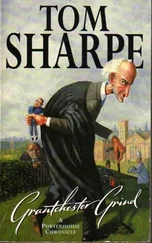“Come in,” the Dean called. The door opened and Skullion came in, holding his bowler hat in one hand.
“Morning, sir,” Skullion said.
“Good morning, Skullion,” the Dean said. The ritual of twenty years, the porter’s daily report, always began with pleasantries. “Heavy fall of snow during the night.”
“Very heavy, sir. Three inches at least.”
The Dean licked the envelope and fastened it down.
“Nasty eye you’ve got there, Skullion.”
“Slipped on the path, sir. Icy,” Skullion said. “Very slippery.”
“Slippery? Got away, did he?” the Dean asked.
“Yes, sir.”
“Good for him,” said the Dean. “Nice to know there are still some undergraduates with spirit about. Nothing else to report?”
“No, sir. Nothing to report. Nothing except Cheffy, sir.”
“Cheffy? What’s the matter with him?”
“Well, it’s not just him, sir. It’s all of us. Very upset about the Master’s speech,” Skullion said carefully, treading the tightrope between speaking out of turn and rightful protest. There were things you could say to the Dean and there were things you couldn’t. Reporting the Chef’s sense of outrage seemed a safe way of expressing his own feelings.
The Dean swung his chair round and looked out of the window to evade the difficulty. He relied on Skullion’s information but there was always the danger of condoning insubordination or at least encouraging a familiarity detrimental to good discipline. But Skullion wasn’t the man to take advantage of the situation. The Dean trusted him.
“You can tell the Chef there’ll be no changes,” he said finally. “The Master was just feeling his way. He’ll learn.”
“Yes sir,” said Skullion doubtfully. “Very upsetting that speech, sir.”
“Thank you, Skullion,” said the Dean dismissively.
“Thank you, sir,” Skullion said and left the room.
The Dean swung his chair round to his desk and took up his pen again. Skullion’s resentment had inspired him with a new determination to block Sir Godber’s schemes. There were all the OPs, for instance. Their opinion and influence could be decisive properly organized. It might be as well to inform that opinion now.
Skullion went back to the Lodge and sorted out the second mail. His conversation with the Dean had only partially restored his confidence. The Dean was getting old. His voice didn’t carry the same weight any more in the College Council. It was the Bursar who was listened to, and Skullion had his doubts about him . He took the New Statesman and the Spectator and read The Times , not the Telegraph like the other dons. “Neither fish, flesh, fowl nor good red herring,” Skullion summed him up with his usual political acumen. If the Master got at him there was no saying which way he’d jump. Skullion began to think it might be time for him to pay a visit to General Sir Cathcart D’Eath at Coft. He usually went there on the first Tuesday of every month, a ritual visit with news of the College and also to have a word with a reliable stable boy in Sir Cathcart’s racing stables whose information had in the past done much to supplement Skullion’s meagre income. Sir Cathcart had been one of Skullion’s Scholars and the debt had never been wholly repaid. “Taking the afternoon off,” he told Walter the under-porter when he finished sorting the mail and Walter had put Dr Baxter’s weekly issue of The Boy back into its plain envelope.
“What? Going fishing?” Walter asked.
“Never you mind where I’m going,” Skullion told him. He lit his pipe and went into the back room to fetch his coat and presently was cycling with due care and attention over Magdalene Bridge towards Coft.
Zipser sat on the third floor of the north wing of the University Library trying to bring his mind to bear on The Influence of Pumpernickel on the Politics of 16th-Century Osnabruck but without success. He no longer cared that it had been known as bonum paniculum and his interest in Westphalian local politics had waned. The problem of his feelings for Mrs Biggs was more immediate.
He had spent an hour in the stacks browsing feverishly through textbooks of clinical psychology in search of a medical explanation of the symptoms of irrational violence and irrepressible sexuality which had manifested themselves in his recent behaviour. From what he had read it had begun to look as if he were suffering from a multitude of different diseases. On the one hand his reaction to Skullion suggested paranoia, “violent behaviour as a result of delusions of persecution”, while the erotic compulsion of his feelings for Mrs Biggs was even more alarming and seemed to indicate schizophrenia with sadomasochistic tendencies. The combination of the two diseases, paranoid schizophrenia, was apparently the worst possible form of insanity and quite incurable. Zipser sat staring out of the windows at the trees in the garden beyond the footpath and contemplated a lifetime of madness. He couldn’t imagine what had suddenly occasioned the outbreak. The textbooks implied that heredity had a lot to do with it, but apart from an uncle who had a passion for concrete dwarves in his front garden and who his mother had said was a bit touched in the head, he couldn’t think of anyone in the family who was actually and certifiably insane.
The explanation had to lie elsewhere. His feelings for the bedder deviated from every known norm. So for that matter did Mrs Biggs. She bulged where she should have dimpled and bounced when she should have been still. She was gross, vulgar, garrulous and, Zipser had no doubt in his mind, thoroughly insanitary. To find himself irresistibly attracted to her was the worst thing he could think of. It was perfectly all right to be queer. It was positively fashionable. To have constant and insistent sexual desires for French au pair girls, Swedish language students, girls in Boots, even undergraduates at Girton, was normality itself, but Mrs Biggs came into the category of the unmentionable. And the knowledge that but for the fortuitous intervention of the vacuum-cleaner he would have revealed his true feelings for her threw him into a panic. He left his table and went downstairs and walked back into town.
As he reached Great St Mary’s the clock was striking twelve. Zipser stopped and studied the posters on the railings outside the church which announced forthcoming sermons.
CHRIST AND THE GAY CHRISTIAN.Rev. F. Leaney.
HAS SALT LOST ITS SAVOUR?Anglican attitudes to disarmament. Rev. B. Tomkins.
JOB, A MESSAGE FOR THE THIRD WORLD.Right Reverend Sutty, Bishop of Bombay.
JESUS JOKES.Fred Henry by permission of ITA & the management of the Palace Theatre, Scunthorpe.
BOMBS AWAY.A Christian’s attitude to Skyjacking by Flight Lieutenant Jack Piggett, BOAC.
Zipser stared at the University Sermons with a sudden sense of loss. What had happened to the old Church, the Church of his childhood, the friendly Vicar and the helping hand? Not that Zipser had ever been to church, but he had seen them on television and had been comforted by the knowledge that they were still there in Songs of Praise and Saints Alive and All Gas and Gaiters . But now when he needed help there was only this pale parody of the daily paper with its mishmash of politics and sensationalism. Not a word about evil and how to cope with it. Zipser felt betrayed. He went back into Porterhouse in search of help. He’d go and see the Senior Tutor. There was just time before lunch. Zipser climbed the stairs to the Tutor’s rooms and knocked on the door.
“The trouble with the Feast,” said the Dean, munching a mouthful of cold beef, “is that it does tend to run on. Cold beef today. Cold beef tomorrow. Cold beef on Thursday. After that I suppose we’ll have stewed beef on Friday and Saturday and cottage pie on Sunday. By next week we should be getting back to normal.”
Читать дальше












